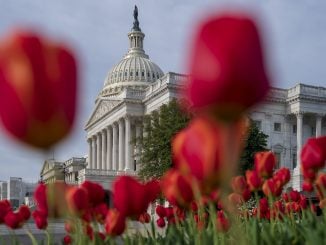RALEIGH — Congressman Dan Bishop (NC-09) introduced a bill to help parents find and access education options when local schools refuse to open for safe, in-person instruction.
H.R. 8182, the Creating Hope and Opportunity through Increased Choice in Education (CHOICE) Act, directs the U.S. Secretary of Education to establish a grant program that will help families pay for alternative educational options. The bill does so by amending the CARES Act to require that “10 percent of all Education Stabilization appropriations be used to fund Opportunity Grants.”
“I was troubled by forced school closures continuing into the fall. Data shows what parents know — virtual learning is subpar and affects students of various income backgrounds differently,” Bishop told North State Journal. “I wanted to introduce a bill that provides options for families faced with school closures, because my constituents were angry that their children were denied the option of in-person education.”
Nearly 70% of all school districts in North Carolina are currently operating under “Plan C,” which is full remote instruction. Those districts operating under “Plan C” represent nearly 1 million of the state’s 1.5 million K-12 students.
According to a press release from Bishop’s office, the grants would be available to any student whose school is not providing in-person instruction “at a level consistent with the 2019-2020 school year.” The grants can also be used for a number of alternative education options.
Bishop’s legislation is similar in intent to that of Sen. Rand Paul (R-KY) in terms of offering parents more flexibility to meet the education needs of their children.
Last month, Paul introduced S. 4432, the Support Children Having Open Opportunities for Learning (SCHOOL) Act, which amends the Elementary and Secondary Education Act of 1965 and the Individuals with Disabilities Education Act. The funds are to be used for education needs like technology, tutoring, private school tuition, curriculum materials and supports for Special Education needs.
Paul’s bill allows families to directly receive the federal portion of per-pupil spending (roughly $1,800 per student); whereas, Bishop’s bill would the bulk of all funds (local, state and federal) to the families. This total for those in Charlotte Mecklenburg, for example, would be around $11,000.
“With my bill, your education is not dependent on your ability to pay or zip code,” said Bishop. “It would give anywhere from 80 to 100% of the total per pupil spending from all levels of government as determined by the secretary of Education. That would mean thousands of dollars for families who need it.”



